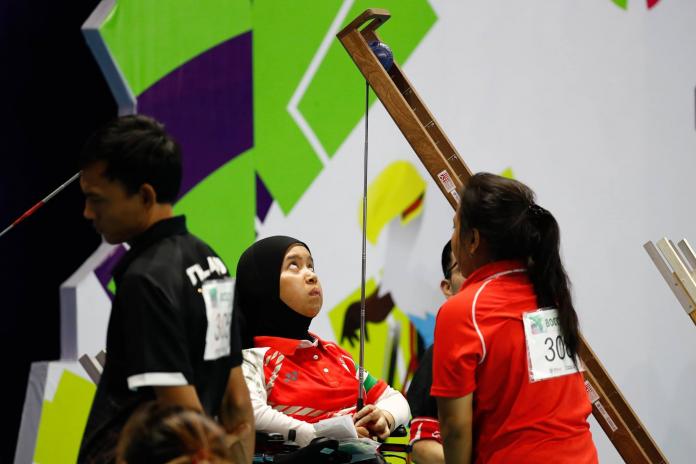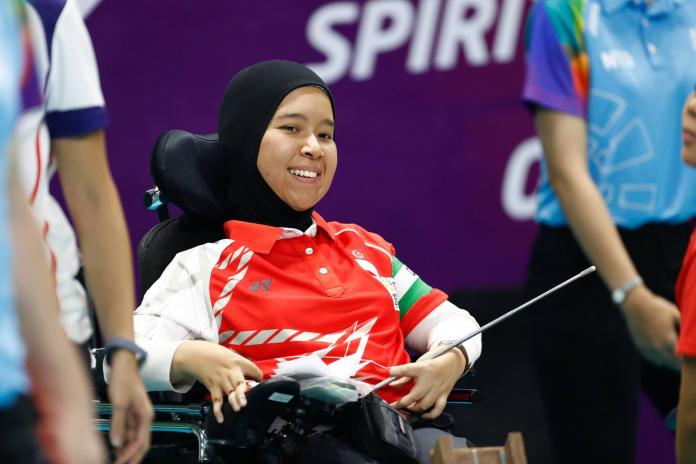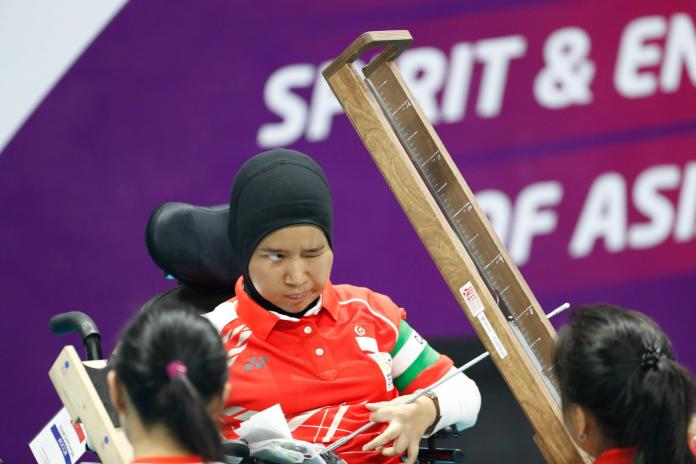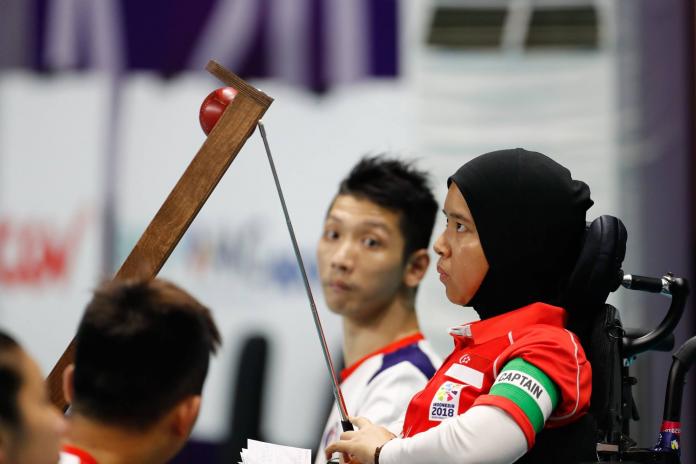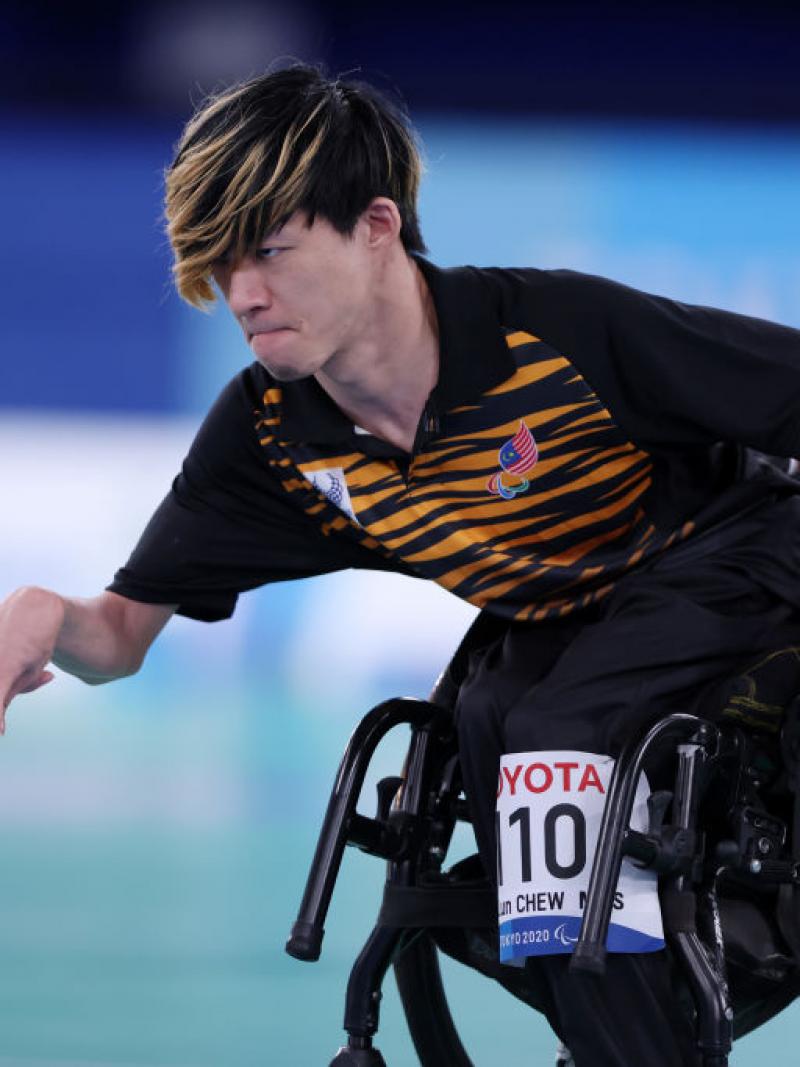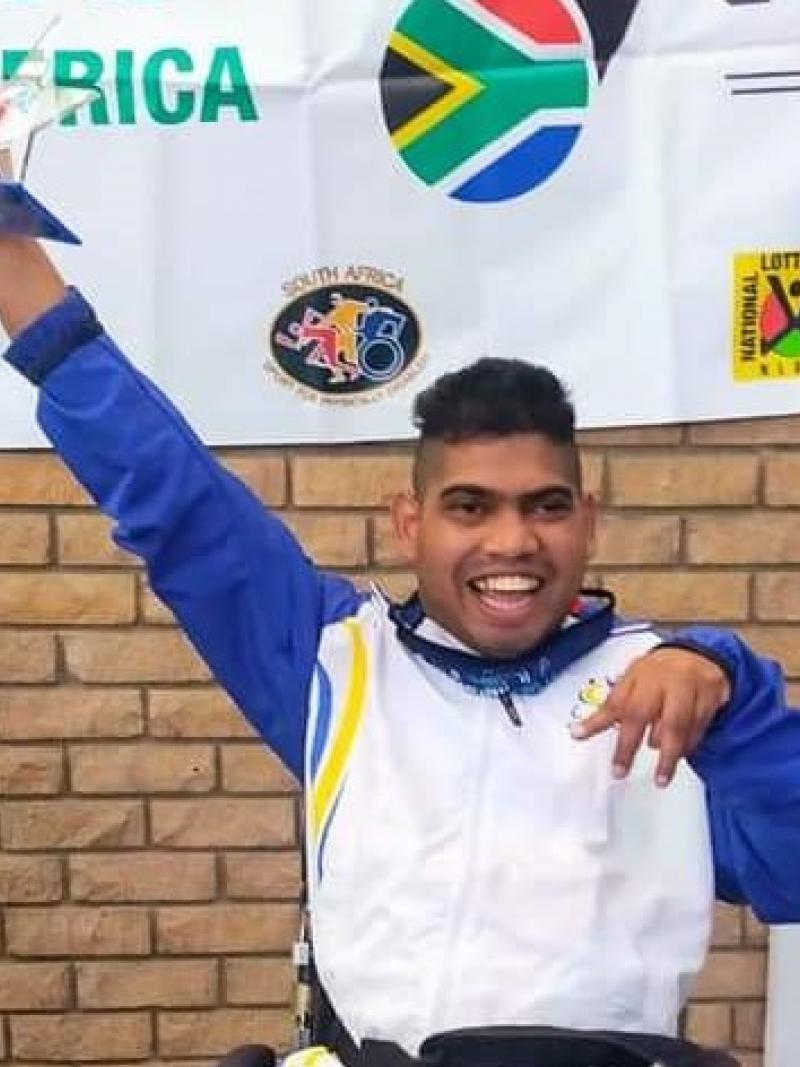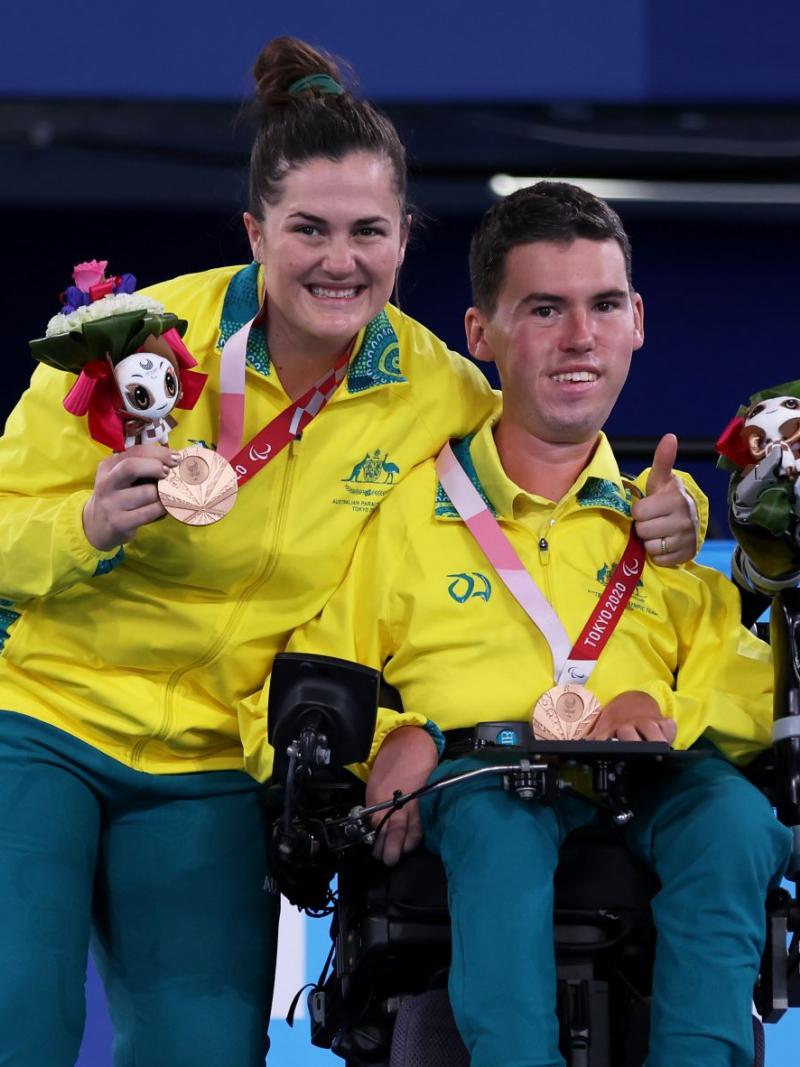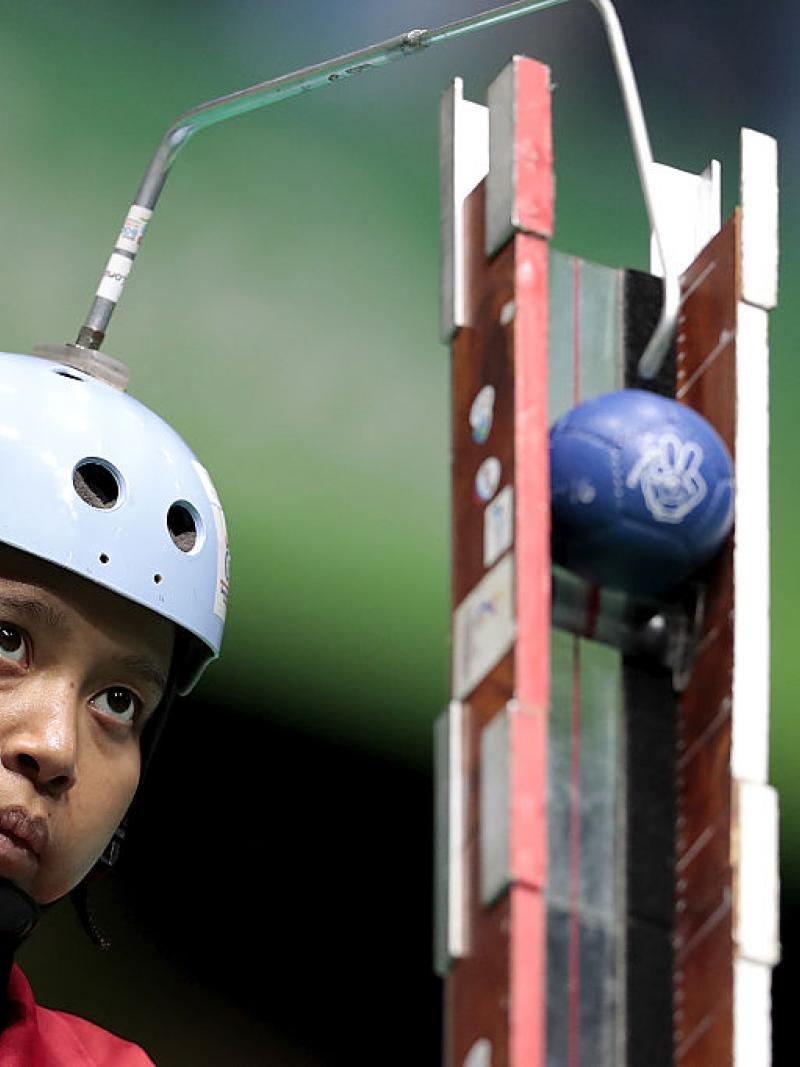Singapore’s history-maker Nurulasyiqah Taha reflects on 20-year boccia journey
Nurulasyiqah Mohammad Taha became the first boccia athlete from Singapore to compete at the Paralympic Games. Now she is looking to accomplish much more 19 May 2023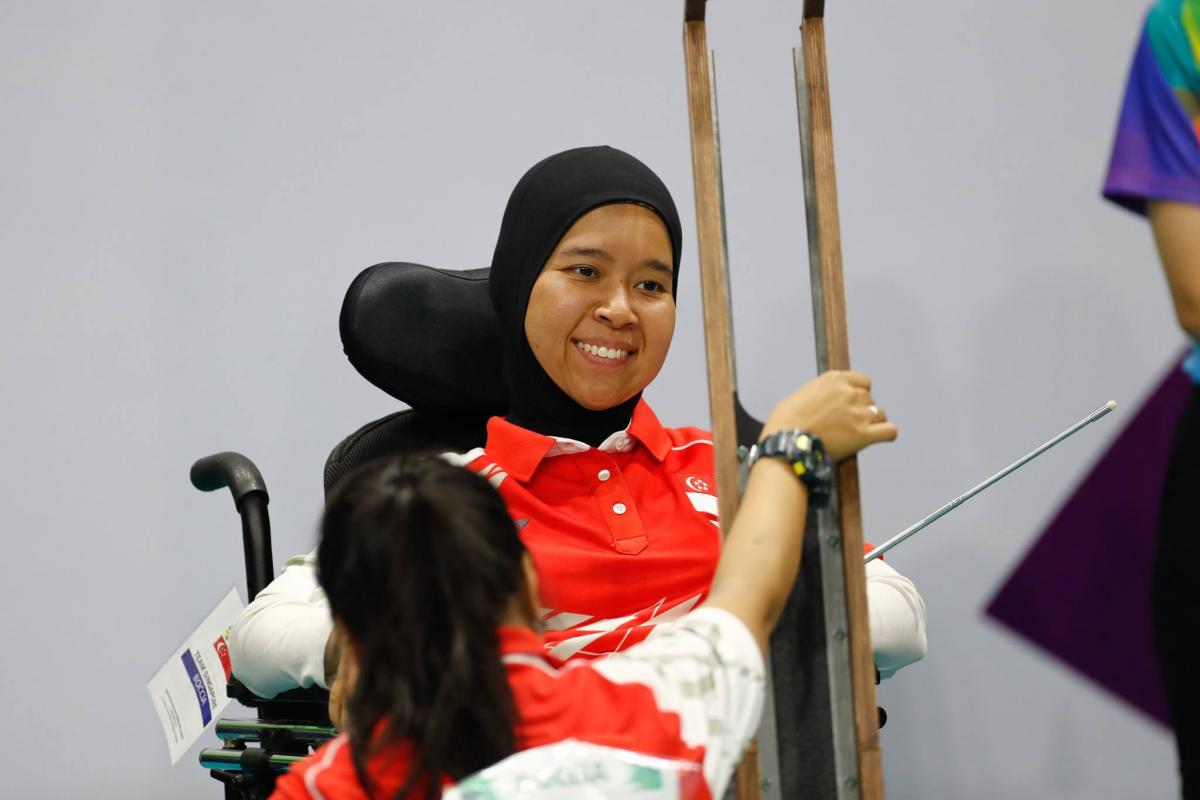
Nurulasyiqah Mohammad Taha, known to most as Nurul, has been on “quite a journey” since she took up boccia nearly 20 years ago. She has traveled to many countries, met athletes from around the world, and became the first boccia athlete from Singapore to compete at the Paralympic Games in 2012.
Playing boccia was also how the Sinaporean found her passion outside of sports – learning languages. Nurul, a two-time Paralympian who made her debut at London 2012, knows six languages, including Korean and Japanese, which she studied after starting boccia.
“My motivation for learning a language was to communicate with other athletes,” Nurul said. “Speaking their language helps to break the ice. They are often intrigued, like, ‘What else can you say?’ It’s just a fun way to break the ice and build rapport with other players.”
Learning from the best
Nurul, who has spinal muscular atrophy, started playing boccia in 2004 after she contacted the Singapore Disability Sports Council to find out about training opportunities.
Boccia, a game of strategy and accuracy, is one of only two Paralympic sports that do not have an Olympic counterpart. Players throw or roll coloured balls as close as possible to a white target ball, known as the jack. The player, pair or team with the most balls near the jack is the winner.
In 2009, Nurul won her first regional medal at the Asia and South Pacific Boccia Championships, capturing silver in the tournament behind four-time Paralympian Jeong Ho Won of the Republic of Korea.
“After I received the medal on the podium, I wanted to congratulate the winner. I had no idea how to say it. I realised that people appreciate it when you learn simple phrases in their language,” Nurul said.
“It was also difficult for me to gesture with my hands, or to use body language to communicate and have a conversation,” she added. “After that, I signed up for weekly Korean classes.”
While mastering a new language is challenging, Nurul enjoys learning sentence structures and grammar, which she says is similar to learning the rules of a new sport.
“If you have the motivation to learn, you will keep at it. I guess that’s why I’ve stuck with boccia for a while. Also, that’s why I also continue exploring new languages.”
In 2014, five years after registering for her first language course, Nurul initiated a joint-training camp in the Republic of Korea. About 20 Para athletes and officials from Singapore and Korea participated in the week-long camp.
“Prior to the camp, I had only met (Korean athletes) in competition or by communicating online. We were grateful that the coaches there were very open to sharing (their tips),” said the Paralympian. “But the thing is, (every) thing evolves so quickly. There are still a lot more things to learn.”
An innovative sport
For Nurul, boccia is an “innovative sport.” Over the years, she has seen innovation in equipment, including the ramps that BC3 boccia athletes use to deliver the ball. Competition rules have also evolved to improve the game experience and ensure a level playing field, she explained.
She competed in boccia’s mixed individual BC3 tournament at London 2012, becoming the first athlete from Singapore to compete in the sport at the Paralympic Games. Four years later, Nurul participated at Rio 2016, competing in two events – the mixed pairs BC3 and the mixed individual BC3 events.
“I still remember going into the training court for the first time (at London 2012) and just being very awe-struck by the entire setup. I was in awe of the entire experience, from the competition in the field of play to staying in the Athletes’ Village.
“I was also very fortunate to be able to replicate that experience in Rio and share that with my teammate,” she said.
In the pairs tournament at the Rio 2016 Paralympic Games, the Singaporean duo of Nurul and Toh Sze Ning advanced to the bronze medal match before losing to Greece.
“Time flies when you are learning and enjoying what you do” she said. “I think in terms of the general boccia athlete population, we are athletes with higher support needs. I would like to see the sport evolve more and allow (athletes with) the most severe impairments to still play.”
The journey continues
While Nurul has created history and paved the way for Para athletes in Singapore, she has not traveled outside of her country for competitions since 2019 because of the challenges created by the COVID-19 pandemic.
Despite learning the Japanese language and training to compete at her third Paralympic Games, she failed to qualify for Tokyo 2020. Her world ranking has since dropped, and she is currently not on the world ranking list.
“When I learned that my name is no longer on the world ranking list (after Tokyo 2020), I was, of course, sad. But because I have given a lot of thought about why (and how) I got into that position, I was able to accept it,” the athlete said.
During the pandemic, she obtained a Master’s degree in analytics which has helped her explore her chosen sport from a different angle and diversify her skill sets. While studying she also picked up a few more languages – the programming languages of Python and R.
Now, Nurul plans to make her way back into international competitions and compete against Para athletes from around the world again.
“I don’t think this (situation) will be forever. I’m sure that the time will come when I will be able to get back into competition.
“I want to see how far boccia can take me. It has taken me on quite a journey so far,” Nurul said. “So, who knows, where else can I go with this?”





